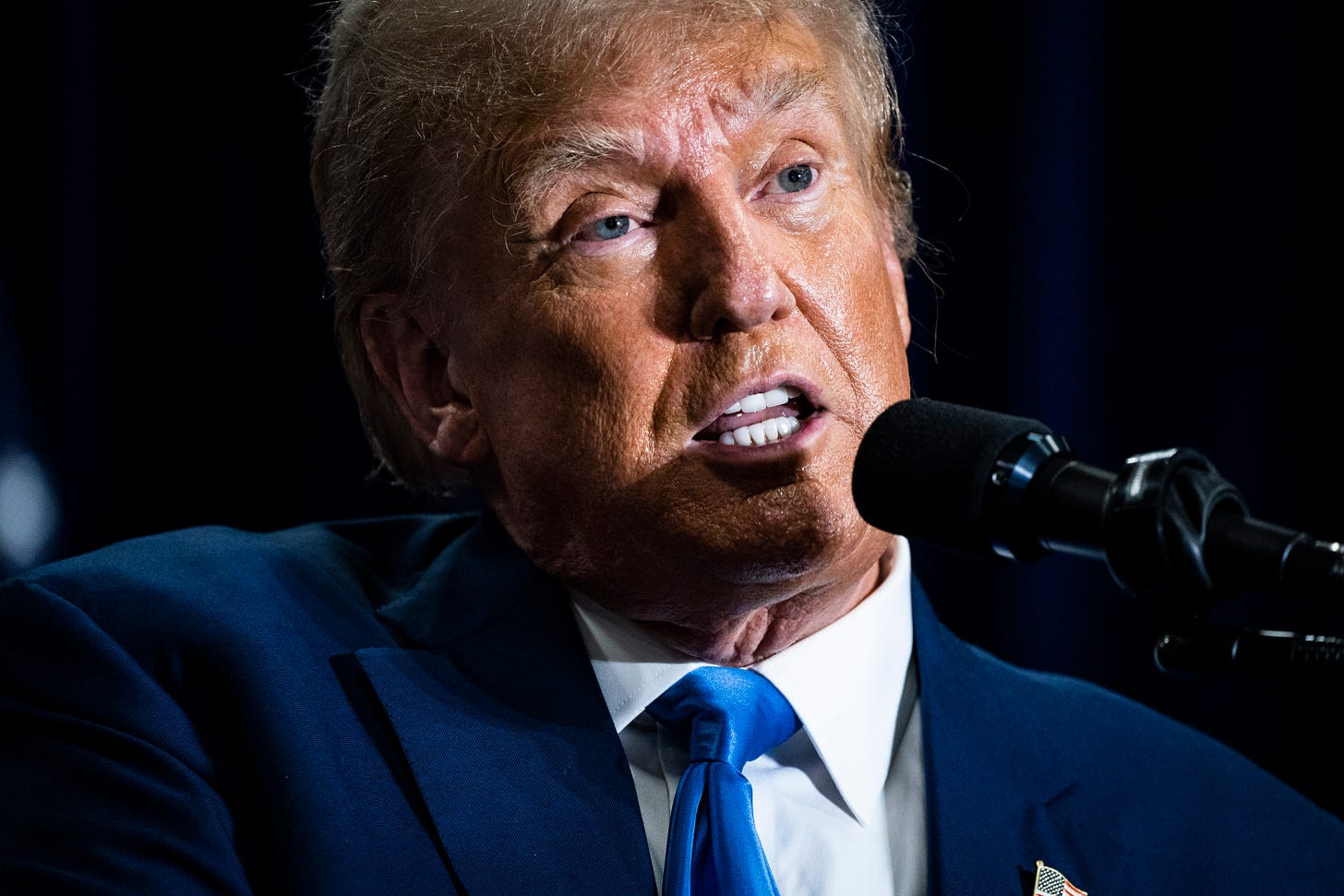Courts to Trump Again and Again: You’re Not Above the Law
The former president’s quixotic quest for infinite immunity.

THREE DAYS BEFORE DONALD TRUMP’S inauguration in January 2017, a former reality-show contestant named Summer Zervos filed a lawsuit in New York state court. During the 2016 presidential campaign, she had accused Trump of having sexually assaulted her on the set of The Apprentice back in 2007. Trump called her a liar and she sued him for defamation. This case was notable not just as a claim that the president had engaged in sexual assault but also for what happened next: Trump argued that he was immune from the suit because, even though the alleged conduct took place before he was president, his winning the office shielded him from being sued.
What was odd about Trump’s argument—other than its extreme claim—is that the U.S. Supreme Court had largely resolved this question unanimously during the Clinton administration. It rejected a similar claim by President Bill Clinton that Paula Jones’s lawsuit had to wait until he was out of office, holding that “the President, like other officials, is subject to the same laws that apply to all citizens.”
But that didn’t stop Trump, who argued that Zervos’s case was different because, unlike Paula Jones, she filed in state rather than federal court.
The New York Courts rejected Trump’s argument. (Our organization, Protect Democracy, filed the only amicus brief in the New York courts in the Zervos case—a brief on behalf of three constitutional scholars who had made the same argument against immunity in the Clinton case.)
But that didn’t stop Trump, either. Ever since, he has repeatedly sought to evade accountability in all manner of civil and criminal cases on the theory that he is absolutely immune from, well, everything.
In May 2020, on the same day Trump argued he was immune from civil suit before the New York appellate court in the Zervos case, he separately argued in the U.S. Supreme Court that he should be immune from requests by Congress for his tax returns, because he was president. The U.S. Supreme Court (in Mazars v. Trump) rejected that claim, holding that the president is subject to the same legal obligations as all other citizens: “When Congress seeks information needed for intelligent legislative action, it unquestionably remains the duty of all citizens to cooperate” (internal quotes omitted).
Recall that when the Manhattan district attorney subpoenaed Trump’s accounting firm, for his tax returns, Trump claimed he was immune from criminal investigation while president, with his attorney asserting in court that Trump could shoot someone on Fifth Avenue and not be prosecuted. (We filed a brief on behalf of 37 former GOP members of Congress, administration officials, and legal experts showing that the historical record is clear about presidents not being above the law.) Here too, the Supreme Court held that “In our judicial system, the public has a right to every man’s evidence. Since the earliest days of the Republic, ‘every man’ has included the President of the United States” (internal quotes omitted).
Trump claimed immunity at just about every opportunity. When E. Jean Carroll sued Trump in federal court for defamation, he claimed immunity and the federal district court in New York rejected it.
When Capitol Police and lawmakers sued Trump over injuries suffered on January 6th, Trump claimed he was absolutely immune from that suit because all speech a president delivers falls within official presidential duties. (We represent the officers in this case.)
And in response to the federal criminal indictment brought by Special Counsel Jack Smith over the attempt to overturn the 2020 presidential election, Trump again asserted that he is immune.
Last week, federal courts rejected these arguments as well.
All told, our judiciary has agreed time and again that Trump is not above the law. In each and every one of these decisions, from more than fifteen different judges, in no fewer than seven different courts, in opinions joined by judges appointed by Democrats, by Republicans, and even by Trump himself, his arguments for immunity have been rejected. In civil cases and criminal cases; cases about criminal investigation and cases about congressional oversight; cases based on conduct before he was president and while he was president; cases while he was in office and after he left; cases in trial courts and in appellate courts; cases in state court and cases in federal court. Over and over and over again.
As federal court Judge Tanya S. Chutkan wrote, “Defendant’s four-year service as Commander in Chief did not bestow on him the divine right of kings to evade the criminal accountability that governs his fellow citizens.” That sentiment infuses each of these decisions.
It is hard to imagine our courts being more clear or consistent in upholding the principle that, in this country, no one is above the law, not even the president.
And yet, Trump may still get his way. Not because our legal system puts him—or anyone—above the law, but because his strategy is delay: He is seeking to stall accountability, so that he can once again obtain the power of the presidency. And then use that office not just to continue to seek immunity in court but also to try to order the dismissal of cases against him, pardon himself and potential witnesses to his misdeeds, and otherwise use the machinery of government to create for himself the untouchability the judiciary has refused to bestow.
Whether Trump’s strategy succeeds will be the ultimate word on whether we are a nation of laws and not of kings.







